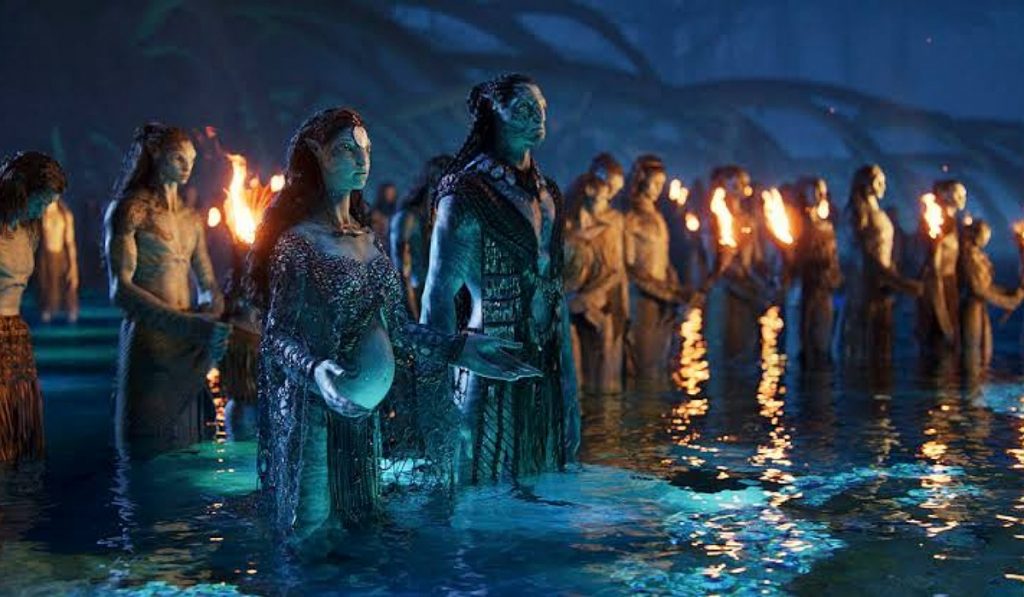James Cameron’s Avatar: The Way of Water is already in trouble as a social media campaign calls for the boycott of the sci-fi follow-up to the 2009 hit, even if the movie is still making money on a global scale. The film has already raked nearly $300 million abroad. A boycott campaign is urging spectators to avoid the science fiction movie as filmmaker James Cameron is currently being accused of appropriating Native American and Indigenous traditional practises.
The sequel largely continues the theme of colonisers stealing land and resources from tribes, much as the 2009 film Avatar. In the follow-up, it is revealed that the colonisers are humans who need a planet that is entirely habitable because Earth’s resources are more or less running out. The director has been charged with taking the traditions and history of several Indigenous cultures in order to produce a movie with a predominantly white cast.
Co-chair of Indigenous Pride LA and Native American influencer Yuè Begay tweeted, “Join Natives and other Indigenous groups around the world in boycotting this horrible and racist film.” She also added, “Our cultures were appropriated in a harmful manner to satisfy some [white flag emoji] man’s savior complex.” The tweet has received more than 40,000 likes from other people. Begay also highlighted a James Cameron interview from 2010 to a website, in which the Oscar-winning director stated that he had spent a lot of time with Amazonian tribes learning about the history of Indigenous people in North America, which he described as a “dead-end society.”
The Belo Monte hydroelectric dam, which resulted in the eviction of Indigenous people who lived in the Amazon, was discussed in The Guardian in 2010. The Native American past was the “driving force” behind crafting the narrative for the 2009 movie, according to Cameron, who claimed in the article that he had learned to reflect on the indigenous people of North America. “I felt like I was 130 years back in time watching what the Lakota Sioux might have been saying at a point when they were being pushed and they were being killed and they were being asked to displace and they were being given some form of compensation,” Cameron told the Guardian.
Autumn Asher BlackDeer, an assistant professor in the University of Denver Graduate School of Social Work, made yet another criticism of Avatar. She published a tweet, “Why watch a ridiculous movie about blue aliens when you could just support actual Indigenous people and our struggle for clean water here on Earth? Yes, we do exist.” James Cameron had previously stated that his movie is a fictionalised account of North and South American history during the early Colonial era.
